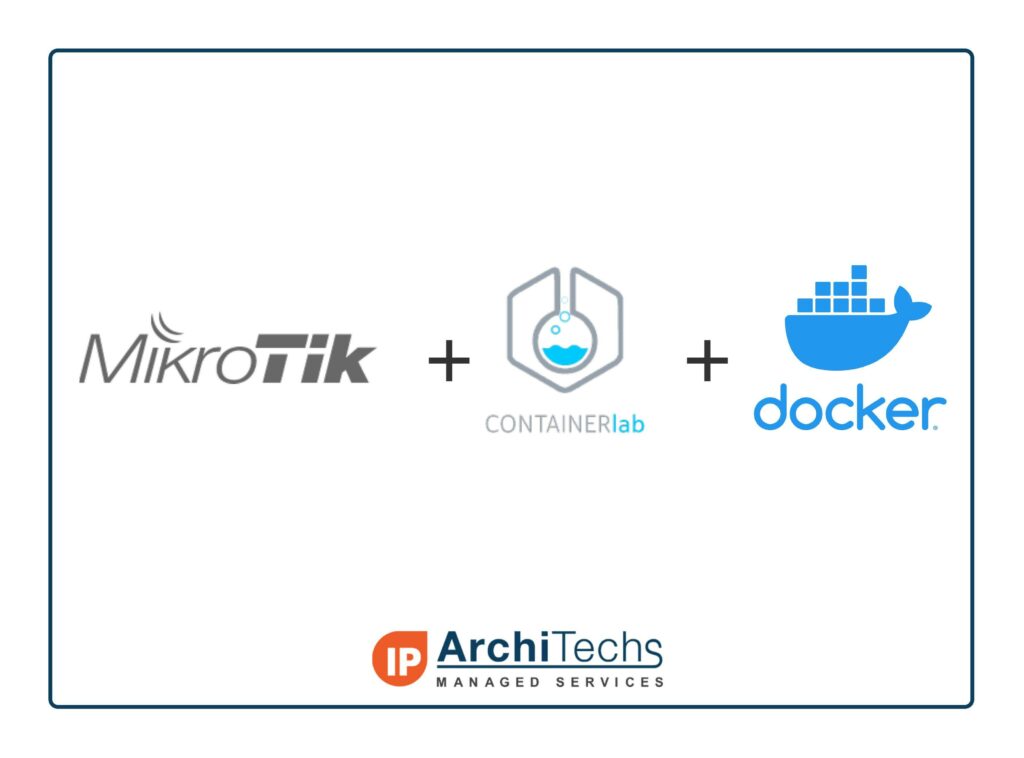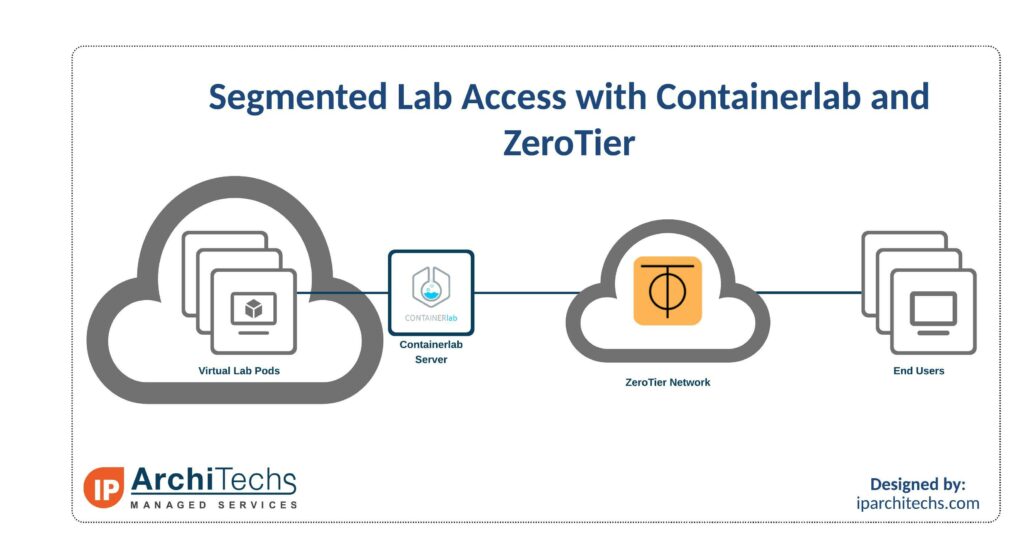Author Archives: Nate Gotz
Author Archives: Nate Gotz

In a previous post, we talked about using Containerlab and ZeroTier to provide remote access to a lab instance. One of the things that was glossed over was creating the Containerlab images. As part of building the images, Containerlab ready Mikrotik RouterOS images are available on Docker Hub.
Containerlab currently supports 2 different kinds of images: pre-built containers and VMs packaged as containers.
Presently, only a handful of NOS vendors provide pre-built containers (Nokia’s SR Linux, Juniper cRPD, Arista cEOS, Cumulus VX, and SONIC VS).
The other option utilizes vrnetlab and is essentially a QEMU VM packaged in a Docker container. The more traditional network operating systems are currently supported via this method. This includes operating systems like Mikrotik RouterOS, Juniper vMX, Nokia SROS, and many more.
Containerlab provides a nice and easy way to build Containerlab ready Docker images. The process is fairly simple.
Containerlab uses a custom fork of vrnetlab that sets things up so that the images built will work with Containerlab. That repository can be found on Github. The first step is to clone that repository.
The next step is to download the Continue reading

When building out network labs, often multiple people will need access to the lab. The main way right now is to use something like EVE-NG or GNS3 to provide access.
There are 2 downsides to this method. The first is that your server is exposed to the internet and if your usernames/passwords aren’t strong enough, your server can become compromised. The second is that sometimes you may not want everyone to be able to add or edit to the lab topology.
The solution to this is using Containerlab and ZeroTier. This setup is great for things like testing new hires, training classes, or for providing lab access to others on a limited basis.
Containerlab is a container orchestrating tool for managing container-based networking labs. It doesn’t just support Container based Network Operating Systems though. Through vrnetlab, there is support for a wide variety of commonly used NOSes: Mikrotik RouterOS, Nokia SROS, Juniper vMX and vQFX, and many more.
Configs are text based making it easy to add/update links between nodes. The lab does need to be destroyed and redeployed when adding/removing links. With some tools to generate configs, it’s easy to spin up a 500+ node Continue reading